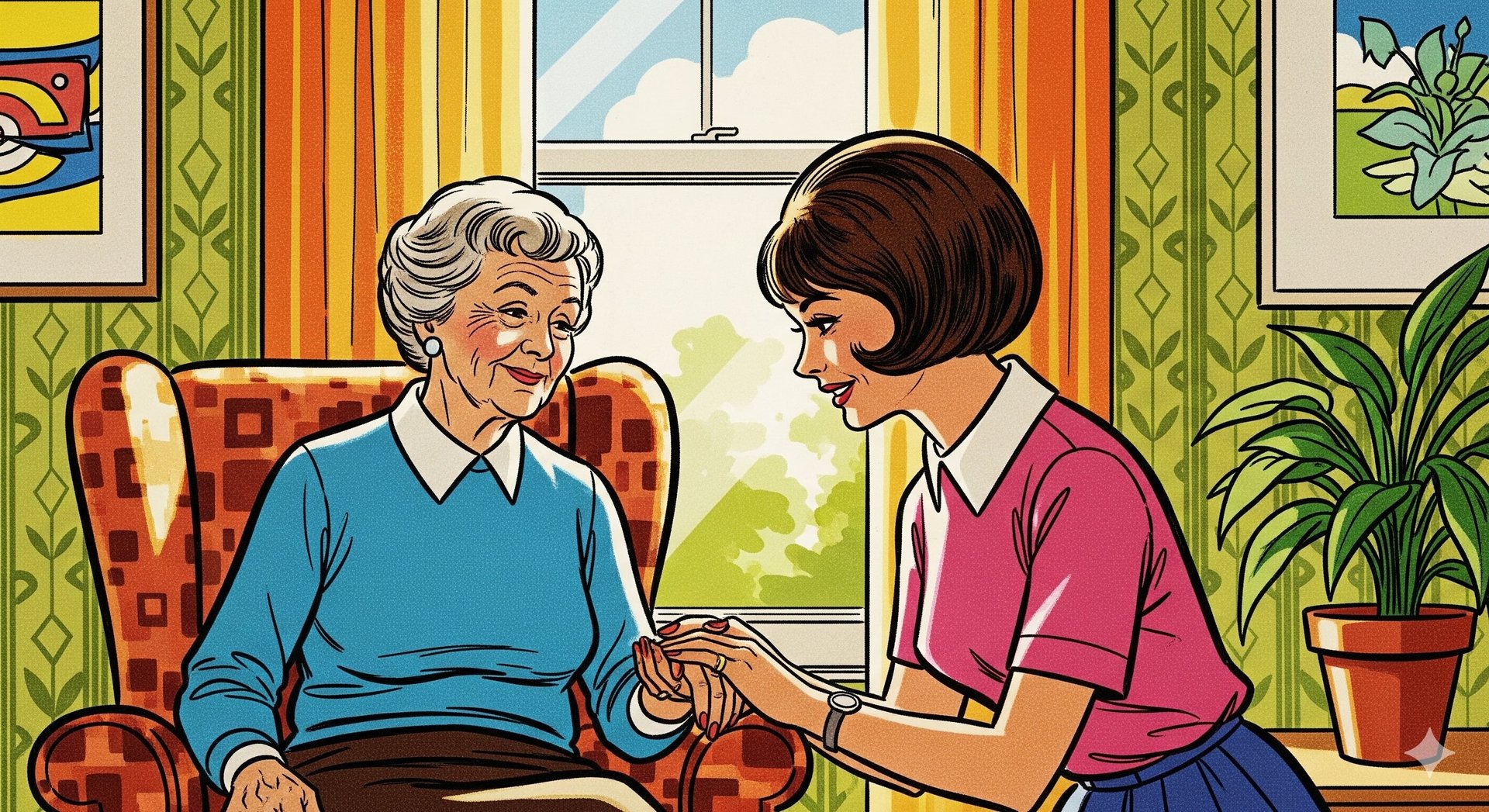Check requirements for Asia's Retirement Visas
Spotting the Silent Signs of Senior Depression: A Family Guide
Learn how to recognize the subtle signs of depression in older adults and what you can do as a family member to provide support and help prevent mental health decline.
USEFUL MEDICAL KNOWLEDGERETIREMENT PLANNING
9/13/20254 min read
My grandmother, a woman who always seemed to have an endless supply of stories and laughter, began to change. Her vibrant garden, once her pride and joy, became overgrown. She’d say she was just "too tired," and her calls became shorter, filled with a new kind of quietness I couldn't place. At first, we wrote it off as a normal part of getting older—a little less energy, a bit more time spent alone. But in my heart, I knew it was something more.
That's the silent trick of depression in older adults. It doesn't always look like the classic sadness we see in movies. It can hide behind a tired sigh, an irritable comment, or a stack of untouched mail. As family members, we are on the front lines, and our ability to notice these subtle shifts is the most powerful tool we have. This guide is for you, the daughter, son, or grandchild who just wants to help.
(Check out our online Quick Guide For checks on Senior mental health)
The Signs That Aren’t Always Obvious
Depression isn't a normal part of aging. It's a medical condition, just like high blood pressure or diabetes, and it can be treated. The first step is to recognize its unique symptoms in seniors, which often present as physical or behavioural changes rather than just emotional ones.
Physical Complaints: This is a big one. My grandmother's "tiredness" was actually a deep, physical fatigue. Look out for new, unexplained aches and pains, frequent headaches, or a general lack of energy. It’s easy to dismiss these as simple aging, but they can be the body’s way of crying for help.
Loss of Interest (Anhedonia): The technical term is anhedonia, and it's a huge red flag. Has your loved one stopped doing things they once adored? Maybe they’ve put away their knitting needles, given up their favorite card game, or stopped calling their friends. It's a loss of joy, and it’s a powerful sign that something is wrong.
Changes in Appetite and Sleep: Pay attention to their routine. Are they skipping meals or, conversely, eating more than usual? Are they waking up in the middle of the night or sleeping far more than they used to? These seemingly simple changes can point directly to an underlying depressive state.
Irritability and Apathy: While classic depression often involves sadness, senior depression can manifest as irritability, a short temper, or a general apathy toward life. They might snap at you over something small, or they might seem completely withdrawn and uncaring about things that used to matter.
Neglect of Self-Care: Is your loved one neglecting their hygiene? Have they stopped taking their medication on time, or are they forgetting appointments? This can be a sign of both depression and other cognitive issues, and it's a clear signal that they need support.
How to Gently Approach the Conversation
Talking about mental health can feel intimidating, especially with an older family member who might have grown up in a time when such topics were considered private or taboo. My family's approach was a slow, patient one. We didn’t say, “Are you depressed?” Instead, we focused on their observable symptoms.
Choose the Right Time: Find a calm, private moment. Don’t bring it up in the middle of a family gathering or a busy day.
Start with "I" statements: Instead of saying, "You never call anymore," try, "I've noticed we haven't talked as much lately, and I miss our conversations." This makes the conversation less confrontational and more about your concern for them.
Validate their Feelings: It's important to listen without judgment. Say things like, “I can see you are feeling tired,” or “It makes sense that you feel overwhelmed.” Don’t dismiss their feelings with phrases like “snap out of it” or “you have so much to be thankful for.”
Suggest a Check-Up: Frame a visit to the doctor as a general wellness check. You can say, “I'm worried about you and your energy levels. Let's make an appointment to talk to the doctor about it. They can help figure out what’s going on.”
A Path to Prevention
Prevention is just as critical as detection. A mentally healthy senior is often one who is engaged and has a sense of purpose.
Encourage Social Connection: Loneliness and isolation are massive risk factors. Help them stay connected. This could be as simple as setting up a weekly video call with a faraway relative, finding a local senior center with activities they enjoy, or simply making regular visits to sit and talk.
Promote Physical Activity: Even gentle exercise, like a daily walk around the block or some simple chair yoga, can have a profound impact on mood. It releases endorphins and can combat the physical symptoms of depression.
Nourish the Body and Mind: A healthy diet and adequate sleep are foundational. Help them with meal prep or get them into a consistent sleep schedule. A well-nourished body is better equipped to fight off mental and physical illness.
Ultimately, caring for an aging loved one’s mental health is a marathon, not a sprint. It takes patience, observation, and a whole lot of love. By understanding the silent signs and being a gentle, non-judgmental presence, you can help them find their way back to the vibrant, joyful person they are.
This article is for informational purposes only and is not a substitute for professional medical advice, diagnosis, or treatment. Always consult a qualified healthcare provider with any questions about a medical condition.


Address
Blk 8 Cantonment Close
SIngapore